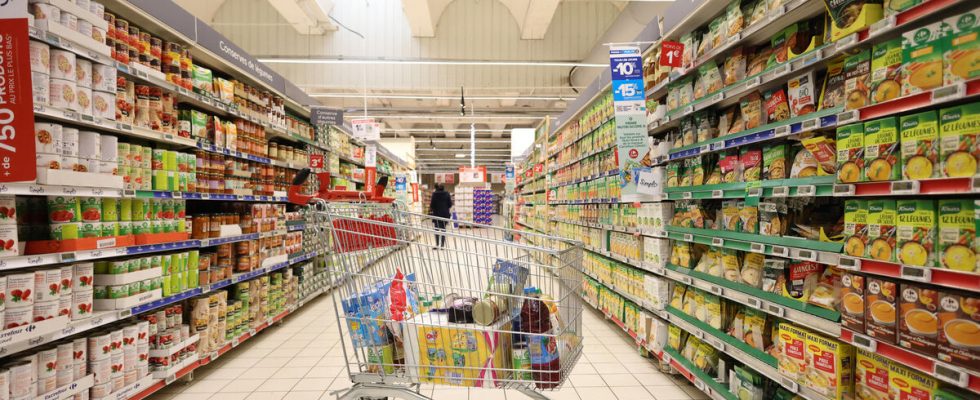Everything was not yet settled this Wednesday evening, January 31, a few hours before the end of commercial negotiations between large retailers and their largest suppliers. But, a brand representative warned a little earlier in the day, “there will be no big surprises, nothing revolutionary. »
Unsurprisingly, therefore, the discussions initiated between brands and agro-industrial manufacturers will not lead to a general reduction in the prices displayed on supermarket shelves. But they mark the end of the surge in prices, which have jumped by more than 20% over two years in food.
“It’s definitely the end of the great inflation”
“Overall, we can expect slight price inflation, of the order of 2 to 3%, this is the end of the great inflation,” notes Jacques Creyssel, of the Federation of Commerce and Distribution. (FCD). And consumers will be able to see some declines: “This is the case for sunflower oil and cereal-based products, particularly pasta,” he says. Conversely, products like chocolate and olive oil will continue to increase. »
Distributors are announcing price reductions on ready meals, “due to the reduction in energy costs”, or even on hygiene products. Some have already applied reductions on shelves, such as Carrefour or Intermarché.
These annual negotiations, which usually end on March 1, had been brought forward by the government, which wanted to pass on as quickly as possible the drop in the prices of certain products (soft wheat, rapeseed or sunflower oil, etc.). The anger of farmers has impacted discussions between multinationals and distributors, inviting itself to the doors of certain supermarkets and industrial producers.
A few hours before the end of these bitter negotiations, certain players in mass distribution also received a letter from Unell, the National Union of dairy farmers who supply the giant Lactalis: “The dairy farmers that we represent do not would not understand that your brand is a “partner” of a group that does not respect Egalim,” writes Unell, referring to the standoff between the breeders’ organization and the group, who called for commercial mediation . Bercy, for its part, announced a strengthening of controls by the General Directorate for the Repression of Fraud (DGCCRF) on contracts between brands and their suppliers.
A “current negotiation system running out of steam”
In this tense context, these shortened discussions did not all lead to agreements this Wednesday. “When in certain discussions, a manufacturer demands a 3% increase compared to a distributor who asks him to lower his prices by 3%, this means that they do not even agree on the vision of the market. It makes things much more complicated,” says Richard Panquiault, president of Ilec, a union bringing together the largest industrialists.
Dominique Schelcher, boss of the Système U group, pointed out on Tuesday a “current negotiation system that is running out of steam”: “Negotiating for only two and a half months, not being able to adapt throughout the year, that no longer holds up. »

